 Writing blog content is one of the best ways to generate traffic and inbound links to your site. Marketers who blog consistently see up to 97% more organic links generated for their site. Guest blogging greatly contributes to that number if you’ve made that part of your content marketing strategy.
Writing blog content is one of the best ways to generate traffic and inbound links to your site. Marketers who blog consistently see up to 97% more organic links generated for their site. Guest blogging greatly contributes to that number if you’ve made that part of your content marketing strategy.But we already know guest blogging builds links. The idea is so well-known that it’s on every “how to build organic links” post.
Let’s try something a little more fresh and creative than that.
Because as sure as I’m typing this right now I imagine you would rather face the raging fires of hell than have to guest post constantly just to build a handful of links each month.
Here are 10 actionable ideas besides guest blogging to help you startbuilding quality authoritative links.
SEJ SUMMIT. For SEOs. By SEOs.
Claim your chance for 1-on-1 time with digital marketing experts from GOOGLE, CONDE NAST, WORDSTREAM, and more at our speaker lunch in New York this November.
1. Create Valuable Resources
A resource is anything helpful that your audience will find of significant value, either for themselves or for someone else.
A good resource is more than just a long-form 1500 word blog post. It deep dives into topics and can stretch on for pages, combining data and insight that your audience would be hard pressed to find anywhere else.
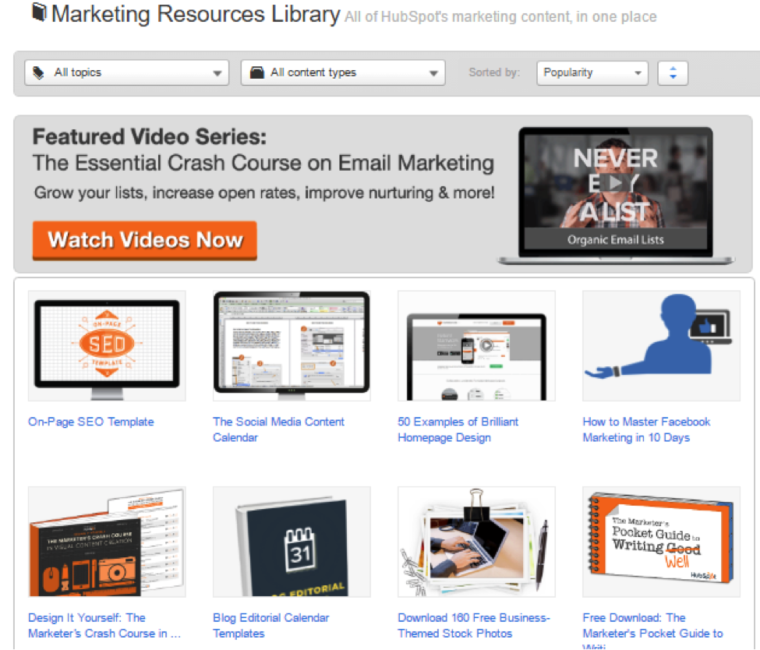
A few things come to mind when I think about quality resources:
The first is the Marketing Resource Library from HubSpot, which is packed to the brim with essential content that every marketer should binge on.
The second is Brian Dean’s Definitive Guide to LinkBuilding over at Backlinko.
Lastly, any of the guides produced by QuickSprout and Neil Patel and often co-authored by other influencers. This Advanced Guide to Content Marketingis a perfect example.
When you create a resource with that much depth, you’re guaranteed to see an influx of natural links as it gets shared by others. Just look at the links on the above Advanced Guide to Content Marketing.
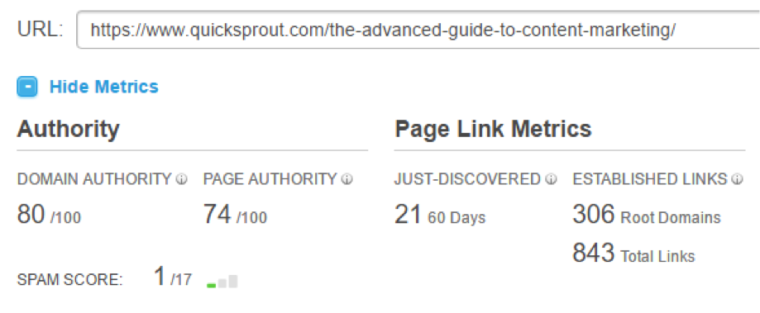
2. Offer up Testimonials
Chances are good you’ve done business with companies relative to your industry, perhaps with vendors or suppliers. Those companies would be elated to get a testimonial from you.
In many cases, you don’t even have to ask them to link back to as they’ll place a link naturally just to prove it’s not a false testimonial. If the testimonial does go up without a link just ask them to provide a branded link back to your site.
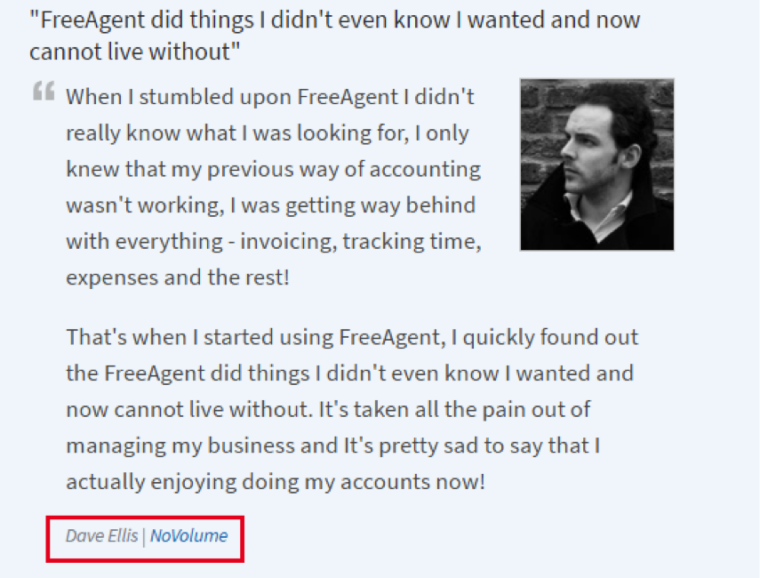
3. Generate Backlinks From Reviews
If you sell a tangible product, offer a service, or operate a company like a SaaS then there are countless opportunities to score a review.
Most industries, especially those dealing with products and consumer packaged goods, have bloggers that frequently write on and review products and services.
Some of those blogs get a ridiculous amount of traffic every month.
Spend a little time searching and you’ll find a handful of bloggers you can contact to offer the product or service for free and let them know that you appreciate the advice and expert opinions they share, and you’d love feedback. If they mention it in their blog that would be great as well.
Under no circumstance should you directly solicit a review in exchange for product or to gain a link. You also want to avoid bloggers who require payment to review a product. Either of these is a violation of Google’s Webmaster Guidelines and that’s not organic.
If they feature it or mention it, you’ll likely score a link back to your site, and that can equate to a ton of relevant referral traffic.
4. Go After Competitor Backlinks
There are plenty of tools to dig into your competition to see where their organic links are coming from. With a little bit of time, you can scour their backlinks to find opportunities that fit your niche.

Once you identify the link sources, you can reach out to try to get backlinks from the same authority sites as well as others that your competitor might have missed.
The best tools I use for link analysis are:
5. Take over Broken Links
One of the easiest ways to score links from an authority site is to help the site owner find broken links. This is best done when a blogger or website has a resource post that links to a variety of contributors or influencers on specific topics.

Find similar post collections and use a tool like this Broken Link Checker. If you uncover any bad links, reach out to the site owner and let them know. Offer up one of your resources or blog posts in its place to see if you can score an organic link.
6. Team up With Influencers
Scoring an interview with an influencer isn’t always easy. They’re busy folks, and they can’t make time for everyone who wants to leverage them for influencer marketing. Engage with them first and try to build the foundation of a relationship before pitching the interview.
If you can score one, these interviews are likely to be shared by the participating influencer as well as their audience. It could lead to quote citations as well as other organic links back to your site.
7. Claim Links That aren’t Links Yet
Take a minute to search for exact matches of your brand as well as your URL and see what comes up. There’s a possibility you’ve been mentioned somewhere, but no link was placed. If you turn up any mentions like this reach out to the site owner or author and ask them if they would consider adding a link to your brand mention.
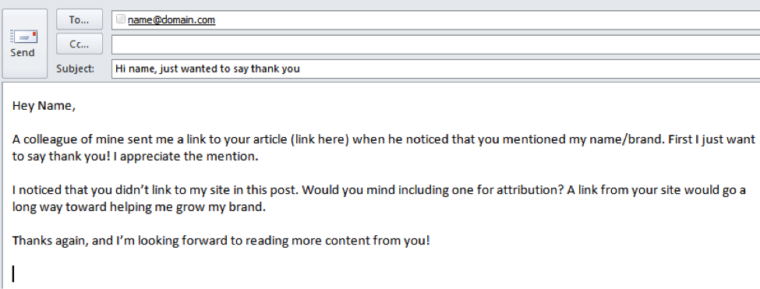
8. Create Alerts for Your Brand and URL
Following up with the last tip, I recommend setting up alerts for your brand and your URL. This way you won’t miss any mentions in the future. If an alert is triggered, you can immediately follow-up to get a link placed.
I recommend using Buzzsumo or Mention for monitoring your brand online, but Google Alerts can work as well.
9. Do a Data and Statistics Roundup
There are all kinds of statistics scattered out there on the web. Rather than force your audience to dig for it, you can do the footwork to compile all that research and data into a single post. This can lead to a large number of links that point back to your page as the data source.

And you can see below the number of links pointing back to HubSpot’s resource, which is what contributed to that top listing in the SERPs.
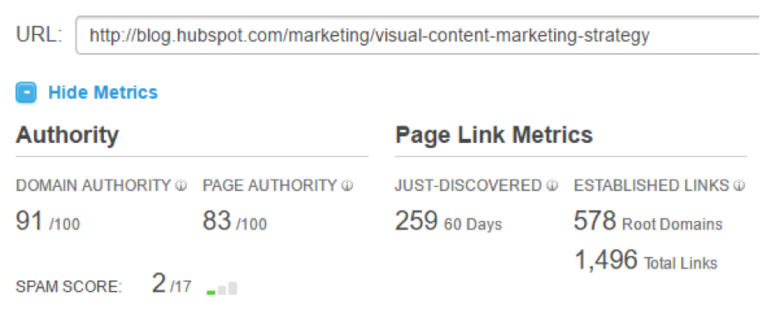
10. Flex Your Expertise with HARO
A great way to get your name and link into the content of others is to useHelp a Reporter (HARO). It’s completely free to sign up with HARO as an authority source. Once you’ve created an account you can get notifications from reporters and content writers looking for sources on specific topics.
You can respond with tips or a quote lining up with their needs and provide details on why you’re a subject matter expert. If they get in touch and quote you, it’s a sure-fire way to get a link back to your site.
Time for a Little Sweat Equity
Building organic links takes time and effort. You’re not going to pull it off without a little sweat equity. Employing the tactics above in conjunction withcreating 10x content on your site and guest blogging will help you grow the most natural, organic link profile to boost your visibility.
What’s been your most successful method for generating organic links? Do you use any of the tactics I’ve listed here? Share your tips with me in the comments below:
Image Credits
Featured Image: Unsplash/Pixabay
All screenshots by Andrew Raso. Taken July 2016.

No comments:
Post a Comment